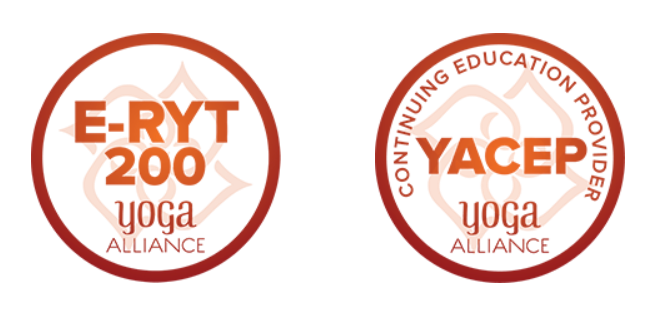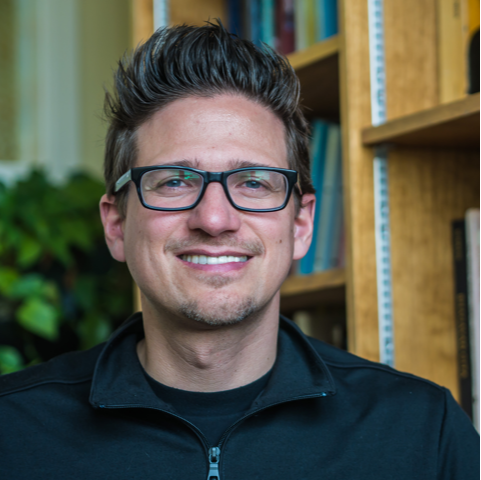
YS 121 | 8 Limbs of Yoga: History, Theory, and Practice of Aṣṭāṅgayoga
Available for Self-Study
ENROLLMENT OPTIONSCourse Description
This online course explores the historical development, philosophical contexts, and pragmatic structures of what is perhaps the most influential pan-Indian, and now global, framework of yoga—Aṣṭāṅgayoga, the “Eight Limbs of Yoga.”
The course begins with a close examination of the “classical” model of Aṣṭāṅgayoga found in Patañjali’s Yogasūtra and its commentarial literature, exploring the framework of ideas, especially of Sāṃkhya philosophy, that are its native context, and focusing attention to the application of the limbs of yoga in practice. Having established a clear and coherent understanding of Aṣṭāṅgayoga in Patañjali’s system, we then look at the roots of Aṣṭāṅgayoga—especially its limbs (aṅga)—as they were developed in Vedic (early Hindu) priestly and renouncer traditions and in the Śramaṇa traditions of Jainism and Buddhism. Following this, we examine the adaptation of Aṣṭāṅgayoga within the larger Classical and Medieval context, in the Epics and Purāṇas (itihāsapurāṇa) including the Bhagavadgītā, in Jain literature, and in Hindu and Buddhist traditions of tantra and haṭhayoga. Lastly, we will look at the ways in which Aṣṭāṅgayoga has continued to be a touchstone for the practice of yoga in the Modern era—and why—with an emphasis on the ways important teachers, such as Krishnamacharya and his student B.K.S. Iyengar, have championed its application. Building upon this, we look at how contemporary transnational and anglophone yoga teachers and scholars have sought to apply Aṣṭāṅgayoga to 21st century yoga practice and to larger social and environmental issues and concerns.
Over the course of these four sessions, we examine the philosophy and practice of Aṣṭāṅgayoga in depth, with an eye to the great breadth of traditions that it has been historically adapted to engage and enhance. This process sheds considerable light upon the dynamic and adaptive nature of living yoga philosophy and practice in the Indian and larger transnational contexts, including and especially with respect to Aṣṭāṅgayoga.

Course Modules
Module 1 — Aṣṭāṅgayoga in the Classical Hindu Context
Module 2 — The Building Blocks of Aṣṭāṅgayoga
Module 3 — Classical Literary and Medieval Transformations of Aṣṭāṅgayoga
Module 4 — Modern Aṣṭāṅgayoga
Students Will Receive:
- 4 Video + Audio lectures (90 min)
- 4 Pre-recorded Q&A sessions (90 min)
- 4 YS Credits
- 12 Hours of CE credit with YA
- Course Syllabus (PDF)
- Weekly Readings (PDF)
- 4 Multiple Choice Quizzes
- Yogic Studies Certificate (PDF)
- Access to the private Community Forum
Dr. Stuart Sarbacker
Professor of Comparative Religion and Indian Philosophy, School of History, Philosophy, and Religion, Oregon State University
Stuart Sarbacker is an Associate Professor of Philosophy and Religion in the School of History, Philosophy, and Religion at Oregon State University. His work is centered on the relationships between the religious and philosophical traditions of Hinduism, Buddhism, and Jainism, especially with respect to the practices of yoga and tantra, including both bodily disciplines and contemplative practices. He also works on issues related to method and theory in the study of religion, with a particular focus on religious experience and its interpretation. He received his Ph.D. from the University of Wisconsin-Madison and has performed institutional study and fieldwork in India, Nepal, and Japan.
He has written three books, including Samādhi: The Numinous and Cessative in Indo-Tibetan Yoga (SUNY Press), The Eight Limbs of Yoga: A Handbook for Living Yoga Philosophy (Farrar, Straus, and Giroux), and the recent Tracing the Path of Yoga: The History and Philosophy of Indian Mind-Body Discipline (SUNY Press).
He is currently participating in a 3-year Luce Foundation-funded program on religion and technology that is being administered by the Institute for Buddhist Studies in Berkeley, California. His project focuses on the ways in which the philosophical and ethical issues associated with self-transformation in Indian contemplative traditions mirror those arising from emergent technologies of human augmentation. He is a co-founder and former co-chair of the American Academy of Religion’s Yoga in Theory and Practice unit, and has also served as the co-chair of the American Academy of Religion’s Mysticism section. In addition to his academic credentials, Professor Sarbacker is an active yoga practitioner and teacher, having trained extensively in contemporary yoga and meditation traditions in India and the United States.
This course is eligible for 12 hours of Continued Education (CE) credits with Yoga Alliance

Stay Informed
Sign up for the Yogic Studies mailing list to find out first about upcoming courses, podcast episodes, promotions, events, and the latest research delivered straight to your inbox.


